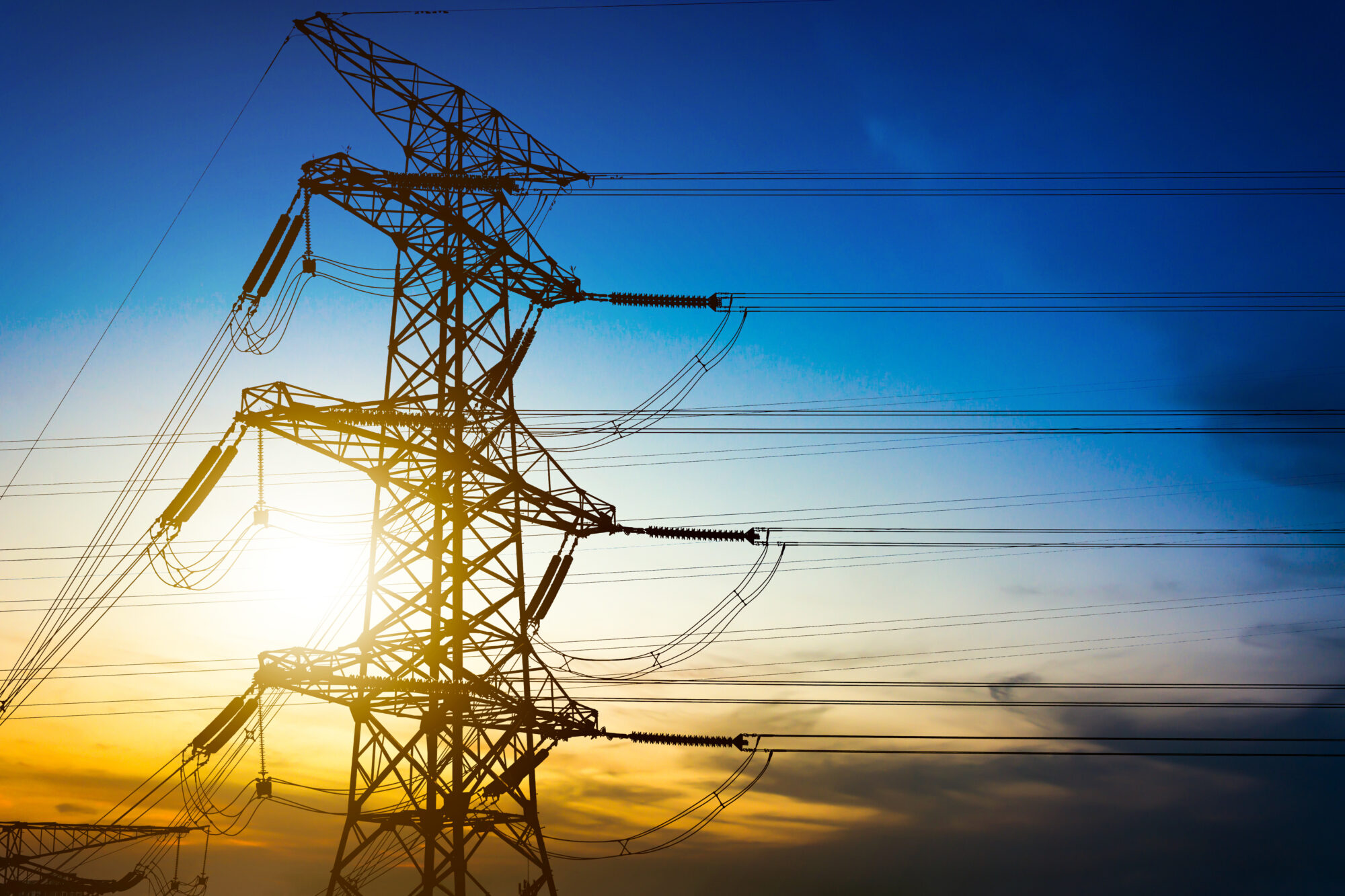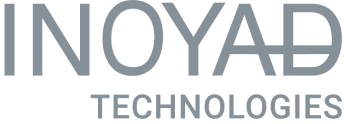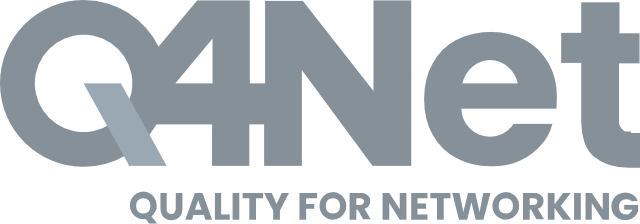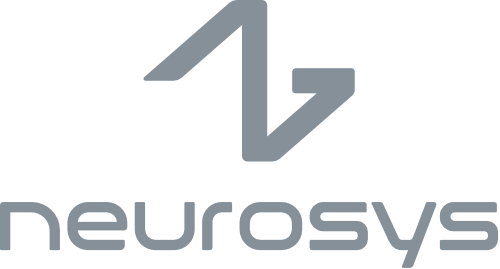The energy industry is a crucial pillar of modern society, powering homes, businesses, and economies. From power generation and distribution to oil and gas exploration and utilities management, the energy sector encompasses diverse and complex operations. In such high-risk and rapidly evolving environments, well-trained employees play a pivotal role in ensuring operational efficiency, safety, and productivity. The success and reliability of energy companies heavily rely on their workforce’s skills, expertise, and ability to adapt to technological advancements and changing industry dynamics. As new challenges emerge, and the industry embraces innovation, employee training becomes an indispensable strategy for preparing personnel to meet the demands of the future.
Augmented Reality (AR) is a cutting-edge technology that merges digital information and virtual elements with the real-world environment. Through AR, users can interact with computer-generated visuals while maintaining their connection to the physical world. AR enhances the real-world experience by overlaying virtual objects, data, and instructions onto the user’s immediate surroundings. The versatility of AR extends its applications across various sectors, transforming industries and revolutionizing user experiences, and the energy sector is no exception.
The role of augmented reality in power industry
In this article, we will delve into the pivotal role of augmented reality in revolutionizing employee training within the energy industry. We will explore how AR’s unique attributes align perfectly with the needs and challenges faced by the energy sector, making it an ideal tool for enhancing the training experience. The article will showcase the distinct advantages that AR offers in terms of immersive and realistic simulations, remote training capabilities, and personalized learning experiences.
The need for effective employee training in the energy industry
The energy industry is inherently complex and demands a high level of expertise from its workforce. Whether it’s operating power plants, exploring oil and gas reserves, or maintaining critical infrastructure, the tasks involved can be risky and require precise skills. Therefore, effective employee training is essential to ensure the safety of workers and the optimal performance of operations. A well-trained workforce not only minimizes the risk of accidents and downtime but also contributes to increased productivity and cost-effectiveness.
In the energy sector, safety considerations are of paramount importance. The risks associated with operating power plants, handling hazardous materials, and working in remote or challenging environments necessitate comprehensive training programs. Employees need to be prepared to deal with potential emergencies and follow strict safety protocols. Furthermore, the energy industry is rapidly evolving, with advancements in technology and changes in regulations. Continuous training and upskilling are crucial to keeping the workforce abreast of the latest developments and best practices.
Understanding augmented reality in the energy industry
In the context of employee training in the energy industry, AR provides a revolutionary approach to learning by creating immersive and interactive simulations. Unlike traditional training methods, which may involve classroom lectures or e-learning modules, AR enables trainees to experience lifelike scenarios and manipulate virtual objects in real-time. This hands-on and in-depth, experiential learning approach enhances trainees’ understanding, retention, and application of knowledge.
In AR-based training, trainees wear AR-enabled devices, such as smart glasses or headsets, which overlay relevant information and visuals onto their field of view. For example, a power plant operator in AR training can interact with a virtual representation of the power plant’s control panel, perform simulated operations, and receive real-time feedback on their actions. This interactivity and realism contribute to more effective learning outcomes and better preparedness for real-world situations.
Advantages of augmented reality in employee training
Immersive and realistic training simulations
AR creates a safe and controlled environment for trainees to experience realistic scenarios without actual risks. Power plant operators can practice emergency shutdown procedures, oil rig technicians can simulate well control operations, and utility field engineers can troubleshoot complex equipment malfunctions. The ability to interact with virtual objects and equipment enhances muscle memory, boosting trainees’ confidence and preparedness to handle real-world situations. AR simulations are repeatable, allowing trainees to practice and refine their skills until they achieve a high level of proficiency.
Improved safety
AR simulations can recreate hazardous or rare events that might be difficult or dangerous to replicate in traditional training settings. As a resulty, trainees can practice responding to a power plant’s electrical fault or an oil well blowout without jeopardizing personnel safety or incurring costly damages. AR enables instructors to track trainee performance and provide targeted feedback, further enhancing the learning process.
Remote training and virtual collaboration
The energy industry often involves operations in remote locations, offshore platforms, or even across borders. In such scenarios, bringing trainees and instructors together for in-person training can be costly and time-consuming. AR technology addresses this challenge by enabling remote training and virtual collaboration. Trainees can participate in AR training sessions from any location, interacting with instructors and fellow trainees virtually. This not only saves travel expenses but also allows energy companies to train a larger workforce simultaneously, optimizing resources and time.
Knowledge sharing
Augmented reality in energy sector supports employee training through facilitating knowledge sharing and collaboration among teams working in different geographical locations. With AR, engineers from different power plants can join a virtual meeting using AR devices, sharing insights and best practices for troubleshooting common issues. The ability to collaborate in real-time fosters a culture of continuous learning and encourages the exchange of valuable expertise, ultimately benefiting the entire organization.
Personalized and adaptive learning
Every trainee has unique learning needs and preferences. AR technology enables personalized and adaptive learning experiences by tailoring training content to individual trainees. AR systems can assess a trainee’s performance and progress, adjusting the difficulty level and pace of the training accordingly. This adaptive learning approach ensures that trainees receive the right level of challenge, making the training more engaging and effective.
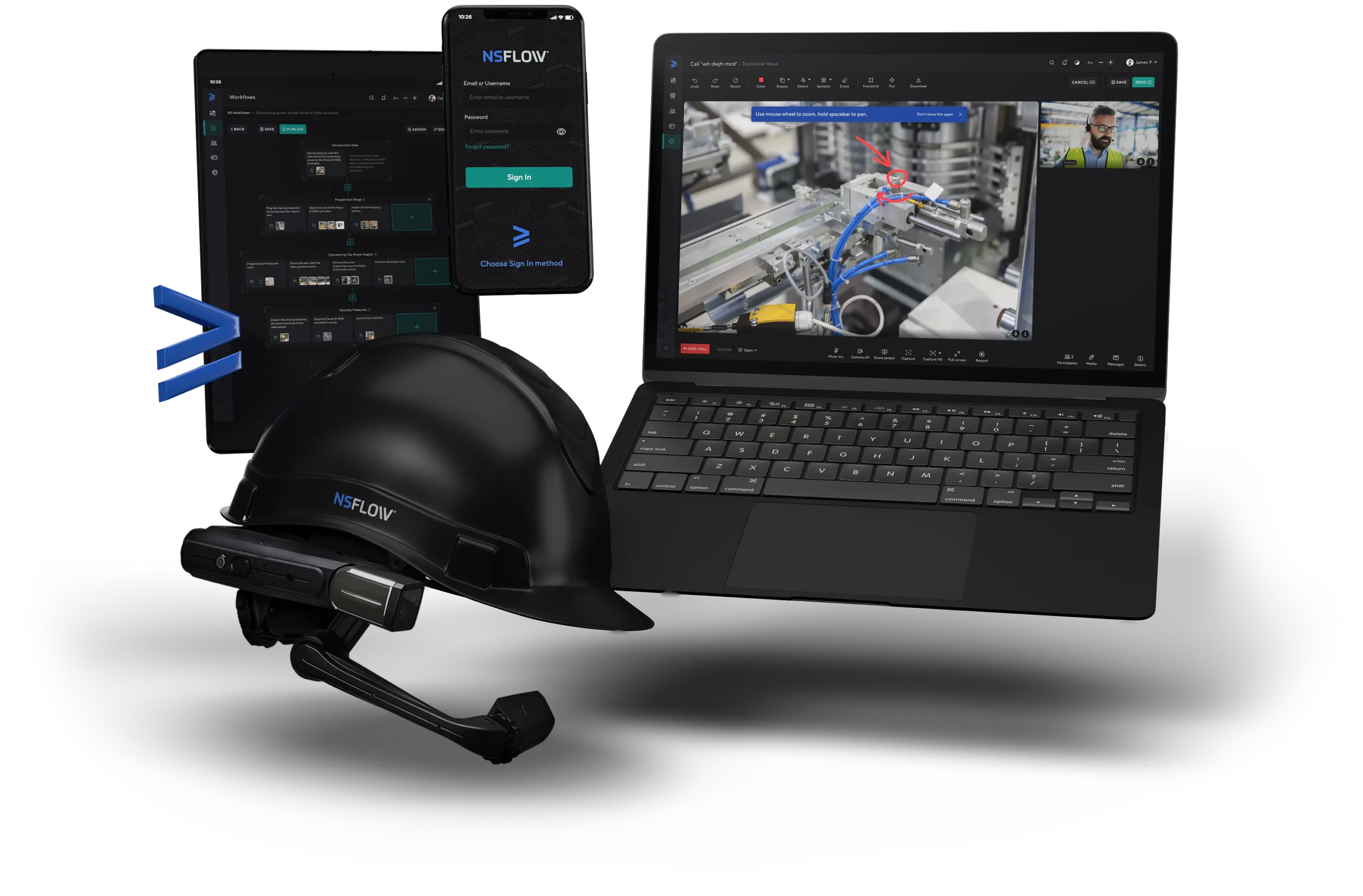
presentation to try
Nsflow in action
Augmented reality applications in energy industry training
AR for power plant operations training
Power plants are critical components of the energy industry, and well-trained operators are essential for their safe and efficient operation. AR technology offers a range of applications for power plant operations training. Trainees can use AR headsets or smart glasses to visualize and interact with the power plant’s control system, process flows, and equipment. Using Nsflow, technicians can perform routine tasks, monitor performance metrics, and respond to simulated emergencies, honing their decision-making skills in a controlled environment.
AR simulations also provide opportunities for trainees to practice complex procedures, such as turbine start-ups or shutdowns, which require precise timing and coordination. Trainees can receive real-time feedback on their actions, helping them improve their performance and achieve the necessary level of proficiency.
For new hires, AR training offers a seamless transition into the workplace by familiarizing them with the plant layout, safety protocols, and standard operating procedures before they physically set foot in the power plant. This pre-training prepares them for on-the-job learning, reducing the learning curve and minimizing the risk of errors during their initial days of work.
AR for oil and gas exploration and drilling
Exploration and drilling operations in the oil and gas industry involve complex geological and engineering challenges. AR can play a significant role in training geologists, engineers, and technicians for these critical tasks. AR simulations can create virtual representations of oil reservoirs, providing trainees with a deeper understanding of subsurface structures and potential drilling locations.
Drilling is a costly and high-risk activity, where mistakes can lead to significant financial losses and environmental impacts. AR simulations allow trainees to practice drilling operations and well control scenarios in virtual environments, honing their skills and decision-making abilities without the risks associated with actual drilling operations.
Augmented reality in energy and utilities field operations
Field operations in the energy and utilities sector often require technicians and engineers to work on complex equipment and systems. AR can enhance their training experience by providing step-by-step instructions and visual aids for maintenance and repairs. Technicians equipped with AR headsets can receive real-time overlays of equipment manuals, troubleshooting guides, and maintenance procedures, improving their efficiency and accuracy in the field.
Augmented reality in energy and utilities sector facilitates remote assistance and collaboration for field teams. Technicians can connect with experts or supervisors in real-time through AR-enabled video calls, allowing for immediate guidance and support. This capability reduces the need for expert personnel to travel to remote locations, saving time and expenses while ensuring that field operations receive timely and expert advice.
In addition to maintenance and repairs, AR can improve data visualization and analysis in the field. Technicians can access real-time data on equipment performance, energy consumption, and other operational metrics, enabling them to make informed decisions and optimize energy efficiency on-site.
The takeaway
Augmented reality is revolutionizing employee training energy industry by offering immersive, realistic, and personalized learning experiences. AR’s advantages, such as interactive simulations, remote training capabilities, and adaptive learning, make it an invaluable tool for elevating the skills and competencies of the energy workforce. Despite challenges in implementation, the future outlook for AR in energy industry training is bright, with ongoing advancements in technology and increasing adoption by forward-thinking organizations. By embracing AR as a transformative training tool, energy companies can position themselves at the forefront of innovation, driving safety, efficiency, and excellence across their operations.
